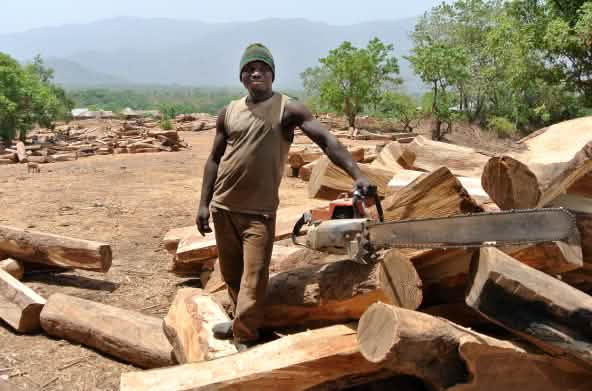Completed campaign
E.On threatens North American and French forests
E.On's plans to convert an old coal power plant to biomass is threatening forests across North America and France. Environmentalists, community groups and local authorities are fighting to stop the power company and protect forests from clearcutting. Please support them by signing our petition.
News and updatesTo: E.On Board of Directors; French Minister for Ecology, François de Rugy
“Call on the French government to block E.On’s plans for a mega-biomass plant in southern France.”E.On, one of Europe’s largest power generating companies, wants to burn almost a million tons of wood annually in a converted coal power plant in Gardanne, near Marseille. Half the wood will be imported from North America, threatening ancient forests from Canada to the southern United States. The remainder is to come from southern France, which will mean over-exploitation of forests, clearcuts and a dramatic loss of biodiversity in the Haute-Provence /Alpes du Sud and Cévennes regions that have been designated the power plant's “priority supply zones”. Wood is not a green fuel: per unit of energy, burning wood releases even more carbon than coal.
The coal power plant, which would otherwise have to be shut down under EU regulations, has been running at a fraction of its capacity for some time. Following the conversion, more coal would be mixed with wood than the plant has burned in recent years.
A permit would never have been granted for such a large and inefficient power plant under French law, yet E.On managed to obtain an exemption – allowing them to draw no less than 1.4 billion euros in subsidies over 20 years.
Numerous local authorities, community groups and environmental organizations have united against E.On’s plans and are fighting to protect their region’s forests and the health of local people in an already heavily polluted town. Please support them by signing our petition to E.On and to the French government.
Across Europe, energy companies are increasingly investing using wood as a fuel, either in existing coal-fired or new dedicated biomass power plants. The biggest European energy corporations, which are at the forefront of the EU’s fast-expanding biomass electricity sector, are also amongst the biggest players in the global trade in wood pellets: E.On, RWE, Vattenfall, GDF Suez, Dong Energy and Drax.
E.On has already converted a large coal power plant in the UK (Ironbridge) to run on wood pellets, although this is believed not to have been a success for the company and the power plant will likely close down within the next two years. The company co-fires substantial amounts of wood with coal in the Netherlands and is running two fairly large dedicated biomass power plants in the UK. In France, their proposed 150 MW converted Provence-4 coal power plant would be by far the largest biomass plant in the country and would inevitably cause significant harm to forests in southern France and overseas.
To find out about the many different serious impacts of large biomass power plants, please see Biofuelwatch’s report “Biomass: The Chain of Destruction”. Here is a summary of some of the most serious impacts:
Large-scale wood burning in power plants worsens climate change:
Power plants burning biomass emit more CO2 per unit of energy than ones burning coal. Biomass proponents argue that this should be ignored because new trees will re-absorb all the carbon emitted. However, most biomass used for electricity in the UK comes from whole trees, felled for this purpose. And it takes many decades for a new tree to grow back and sequester all of that carbon. Most scientific studies on this topic show that for a period of several decades, the climate impact will remain worse than that of generating the same energy from fossil fuels. Yet the urgency of the climate crisis requires that CO2 emissions be reduced rapidly, not increased further for one or more generations to come – see: http://www.biofuelwatch.org.uk/biomass-resources/resources-on-biomass/
Destruction of forests:
Biomass electricity, together with biofuels for transport, requires more land per unit of energy than any other type of energy generation – far more than wind or solar power. Energy companies like to speak about ‘wastes’ and ‘residues’, but there are simply not enough of those around for running large power plants – and moreover, waste wood and sawmill residues are in high demand for other purposes, such as making panel board. Energy companies therefore increasingly rely on burning wood from whole trees, cut down for this purpose. Forests are thus degraded and clearcut for bioenergy – not only in Europe, but also in North America, where E.On plans to source up to half of its wood. The company has a sourcing agreement with the largest US pellet producer, Enviva, which has been shown to make pellets from clearcut ancient and highly biodiverse swamp forests in North Carolina.
Impacts on communities:
Burning biomass in power plants is overall as polluting as burning coal. E.On wants to burn some chemically treated waste wood together with virgin wood in Gardanne, and this will further increase toxic air emissions. Emissions from biomass power plants are linked to respiratory and heart disease and some of the toxins can cause cancer and birth defects.
Biomass will not replace coal:
Large energy companies are not investing in biomass in order to burn less coal. E.On, for example, has just built a large new coal power plant near Rotterdam. The impetus behind converting coal power plants to biomass is to avoid having to close them down, as is the case with E.On's Provence-4 plant. In fact, once converted and running at full capacity, this power plant will actually be burning more coal than it has been burning over the last several years.
For more information on the Gardanne plant and the broader issue of biomass energy, please see Stop the Biomass-querade - a 24-page dossier by Collectif SOS Forêt du Sud (in French).
Further reading:
The New York Review of Books: The Great Biomass Boondoggle
To: E.On Board of Directors; French Minister for Ecology, François de Rugy
Dear Mr. de Rugy, Ladies and Gentlemen,
I support the efforts of local authorities, community and environmental organizations in southern France to stop E.On’s plans to convert the Provence-4 power plant to biomass instead of closing it down. Those plans involve burning 900,000 tons of wood every year, as well as more coal than has been burned by the plant in recent years. E.On’s plans pose a major threat to the region’s forests and biodiversity, as well as to forests in North America. They also threaten large numbers of jobs in local wood processing and in tourism, as forests will have to be clearcut and degraded to feed this power plant. Far from being climate-friendly, burning trees for electricity releases even more CO2 than burning coal for the same amount of energy and it will take new trees many decades to absorb all that carbon again – and even that will happen only if they are not then cut down again and burned.
I am calling on E.On on drop their biomass plans and to close down the Provence-4 power plant. I am also calling on the French government to rescind their decision to approve subsidies for the power plant. Those subsidies were approved in derogation of standards for the efficiency of biomass plants – E.On’s will only be around 30% efficient. Large-scale biomass power plants must not be supported through subsidies or other incentives, nor through planning policy and decision-making because of their serious impacts on forests and thereby on the climate.
Yours faithfully,


